
EPS Symposium on Faith and Scholarship
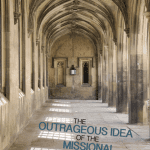 For the last two decades, I’ve been wrestling with the question of how the Christian faith intersects with the academy. I’ve recently written a book, The Outrageous idea of the Missional Professor, in which I set forth some of my findings. (see the companion website here). One of my essays from the book deals explicitly with the topic of the integration of faith and scholarship. An excerpt of that essay can be seen here. Today, at the evangelical Philosophical society website, an online symposium was posted in which scholars interact with my original essay. I am humbled and gratified for the opportunity to be pushed, critiqued, and encouraged by these scholars. In this post, I’ll highlight the abstract for each of these essays and point you to the full text.
For the last two decades, I’ve been wrestling with the question of how the Christian faith intersects with the academy. I’ve recently written a book, The Outrageous idea of the Missional Professor, in which I set forth some of my findings. (see the companion website here). One of my essays from the book deals explicitly with the topic of the integration of faith and scholarship. An excerpt of that essay can be seen here. Today, at the evangelical Philosophical society website, an online symposium was posted in which scholars interact with my original essay. I am humbled and gratified for the opportunity to be pushed, critiqued, and encouraged by these scholars. In this post, I’ll highlight the abstract for each of these essays and point you to the full text.
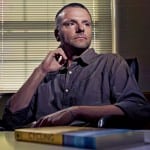 The first essay, “Scholarship and Character as a Christian Academic” is from Mike Austin, professor of philosophy and department chair at Eastern Kentucky University. The abstract for Mike’s excellent essay is as follows:
The first essay, “Scholarship and Character as a Christian Academic” is from Mike Austin, professor of philosophy and department chair at Eastern Kentucky University. The abstract for Mike’s excellent essay is as follows:
Abstract: I discuss examples of how a Christian in philosophy can embrace positions within the discipline but also provide a unique and more cogent grounding for those positions. More specifically, I argue that the best way of accounting for a conception of human rights based on fundamental interests can be grounded in God’s trinitarian nature. A Christian philosopher, depending on her audience, can be explicit about this ultimate grounding or she may instead produce a work of what C.S. Lewis called latent Christianity, in which the theological underpinnings exist in her mind, but are not made explicit in her argumentation. I will also discuss an example of how the fact that, as Gould puts it, “Christ is the source and telos of all things, including all truths that can be discovered,” can inform Christian scholarship, related to the dual nature of the Christian virtue of humility. Finally, I briefly examine the importance of a robust Christian character for the Christian academic.
Here is the link to Mike’s essay.
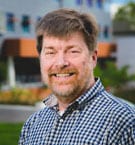
Ganssle, Greg
The next essay, “Some Reflections on the Tasks of the Christian Scholar,” is by Gregory Ganssle, professor of philosophy at Talbot School of Theology. Greg very helpfully extends my own model of faith-scholarship integration. Here is the abstract:
Abstract: The task of the Christian in the academy is complex. Paul Gould’s essay “An Essay on Academic Disciplines, Faithfulness, and the Christian Scholar” includes some helpful conceptual tools. The first helps us visualize the multiple implications of the fact that God is the prime reality. These implications open up the resources of the Gospel for thinking about the task of the scholar. The second helps us give a more nuanced analysis of the contours of one’s academic discipline. In this essay, I develop these tools to help make them more comprehensive, and, hopefully, even more applicable.
You can read Greg’s essay here.
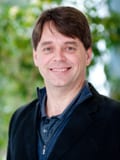 The next essay, “A Perspective on Perspectival Factualism: Response to Paul Gould,” is from Richard Brian Davis, professor of philosophy at Tyndale University in Toronto. Rich raises some concerns about my view of an academic discipline. The abstract reads as follows:
The next essay, “A Perspective on Perspectival Factualism: Response to Paul Gould,” is from Richard Brian Davis, professor of philosophy at Tyndale University in Toronto. Rich raises some concerns about my view of an academic discipline. The abstract reads as follows:
Abstract: Paul M. Gould defends what he calls ‘Perspectival Factualism’ as the best approach for a Christian scholar to adopt towards her academic discipline. I raise some questions for Prof. Gould’s proposal.
You can read Rich’s article here.
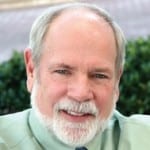 Next we have David Naugle’s “Reflections on Gould’s model of Faith and Scholarship: Consistent, Holistic, Realistic?” Professor Naugle is a distinguished professor of philosophy at Dallas Baptist University. As you can tell from the title, David has a few worries about the viability of my proposal. Here is the abstract:
Next we have David Naugle’s “Reflections on Gould’s model of Faith and Scholarship: Consistent, Holistic, Realistic?” Professor Naugle is a distinguished professor of philosophy at Dallas Baptist University. As you can tell from the title, David has a few worries about the viability of my proposal. Here is the abstract:
Abstract: In this response to Paul Gould’s paper, I will first mention seven positive things I see in his essay. The positives I see, in summary, are that Professor Gould emphasizes God’s mission and our scholarly faithfulness to it, his helpful definitions of academic disciplines, his examples of missional professors, the good Christian resources Gould uses, his boldness, and many other solid points too many to discuss. Negatively, I mention, in summary fashion, the following points: a possible contradiction, a failure to be truly holistic in the faith-learning nexus, and finally, whether his model will lead to the transformation he seeks. Each major section is followed by summaries of various kinds.
You can read David’s article here.
Finally, I weigh in, responding to my friendly critics. I have found this process extremely helpful in thinking through the issue of faith and scholarship. There is no better way to attain clarity of thought than to submit your work to a community of peers and listen carefully to their critiques and worries. At the end of the day, I believe my proposal for how to integrate faith and scholarship still stands. My friends and colleagues who have participated in this symposium have helped to sharpen me and my views. If you are a Christian scholar, or an aspiring Christian scholar, I hope that you find this symposium helpful to you in your journey toward faithfulness to Christ. Here is the abstract for my essay, ‘Further Reflections on Academic Faithfulness: A Reply to Friendly Critics:”
Abstract: I respond to essays by Michael Austin, Greg Ganssle, Richard Davis, and David Naugle as they interact with my model of faith- scholarship integration.
You can read my essay here.
Finally, here is the link to the entire EPS online symposium, including links to an earlier interview I did with the EPS about my book The Outrageous idea of the missional Professor.
 Fueled by the conviction that stories sustain us because we were made to be nourished on the good, the true, and the beautiful, I determined to read one fiction book a month for this past year. And I read some very good stories! In addition to fiction, I have benefitted greatly this year from some solid works in philosophy, theology, biography, and spiritual formation. Without further ado, here are my favorite books read in 2023. As is custom, in my book log, I record the book title, author, and date completed, along with a one sentence description. This has been my practice since 2009. My book log now includes 635 entries. This year I read 43 books.
Fueled by the conviction that stories sustain us because we were made to be nourished on the good, the true, and the beautiful, I determined to read one fiction book a month for this past year. And I read some very good stories! In addition to fiction, I have benefitted greatly this year from some solid works in philosophy, theology, biography, and spiritual formation. Without further ado, here are my favorite books read in 2023. As is custom, in my book log, I record the book title, author, and date completed, along with a one sentence description. This has been my practice since 2009. My book log now includes 635 entries. This year I read 43 books. I love to read. Of course, being a professor helps. I get to read as part of my job. That’s good. But I also love to read for the sheer pleasure of it. When it comes to fiction, I love entering into secondary worlds and journeying along with the characters of the story. Often non-fiction reads like a good story too: life is life, story is story, and often the two kiss (a loose paraphrase of one of my favorite nonfiction stories of the year, All that is Sad is Untrue). (more…)
I love to read. Of course, being a professor helps. I get to read as part of my job. That’s good. But I also love to read for the sheer pleasure of it. When it comes to fiction, I love entering into secondary worlds and journeying along with the characters of the story. Often non-fiction reads like a good story too: life is life, story is story, and often the two kiss (a loose paraphrase of one of my favorite nonfiction stories of the year, All that is Sad is Untrue). (more…) I love to read. It’s partly why I’m an academic today. What could be better than reading, writing, teaching, and learning every day? Reading books awakens me: to truth, goodness, and beauty. I try, each year, to read broadly. This year, I managed to read 47 books. I’ve been recording every book read in a book log for over 10 years now. Whenever I finish a book, I list the date finished, the title, author, and a one sentence summary of the book. As has become my custom, I offer to you my favorite reads of the past year in philosophy, apologetics and theology, fiction, and non-fiction. (more…)
I love to read. It’s partly why I’m an academic today. What could be better than reading, writing, teaching, and learning every day? Reading books awakens me: to truth, goodness, and beauty. I try, each year, to read broadly. This year, I managed to read 47 books. I’ve been recording every book read in a book log for over 10 years now. Whenever I finish a book, I list the date finished, the title, author, and a one sentence summary of the book. As has become my custom, I offer to you my favorite reads of the past year in philosophy, apologetics and theology, fiction, and non-fiction. (more…)





